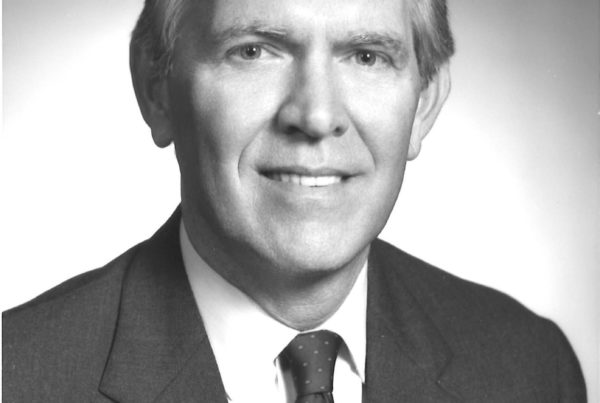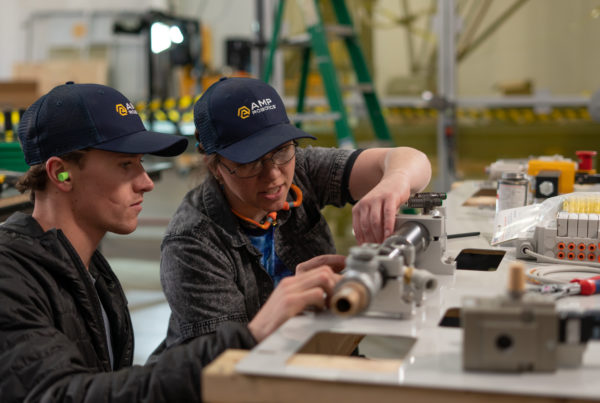ISRI Chair Gary Champlin’s State of ISRI Speech
This week’s Industry Voices is an excerpt from ISRI Chair Gary Champlin’s State of ISRI speech, delivered on the first day of ISRI2021. If you would like to watch this speech and the rest of the session, State of the Association and Keynote featuring José Andrés, in its entirety, you can still register for ISRI2021 at https://isri2021.org/. This session, along with others, are available to attendees on-demand.
This past year will be a milestone for this era. In the last century, World Wars One and Two left their marks on our country and the world. This century was brand new when 9/11 changed our world completely. The war on COVID-19 has changed our lives in ways we may not even know yet.
Recyclers have always been a part of the war effort. In the World Wars, recyclers supplied the raw materials to make ships, planes, and ammunition. It’s the same now as the materials we supply have been used to produce ventilators, hospital beds, personal protective equipment, — even the needles that are delivering the life-saving vaccines to people today. Our industry and our people are vital to the health of our world in many ways. The world is counting on us and together, we have and will deliver. It’s what we do.

Thirteen months ago, as the world began to shut down, ISRI was already at work gathering the information we needed for our members to stay in business. By week three of the shutdown, ISRI had created a COVID resource hub, providing federal & state small-business assistance resources and a policy dashboard updated daily. A week later, we provided EHS guidance for operating safely during COVID and, just days after that, more info ranging from guidance on human resources and mental health to money management and stimulus.
ISRI fought for, and received, from the federal government and from states across the country, the essential designation for the industry, allowing all of us to remain in operation.
And through the leadership of the BIR, we remained active with our counterparts around the world, as we exchanged information and knowledge needed to help keep markets open abroad, as well as here at home.
Not missing a beat, our team of over 20 members and staff fought for us with the Surface Transportation Board on controversial rail practices – and we prevailed. As an aid to helping recycling facilities develop strategies for reducing the risks of fire, ISRI published guidance for members on Creating a Fire Prevention and Management Plan, as well as new resources to help with hazard recognition. And recognizing the challenge companies across our industry are facing with hiring and retaining workers, we developed a workforce development kit containing a selection of marketing pieces you can use to attract qualified applicants.
Together as members, leaders, and staff, we have not only survived, we have built a stronger, more nimble association and, as chair, I truly am grateful for all those efforts.
Of course, if we are to be truly effective as a trade association, we must be forward-thinking. As great as we are at facing today’s challenges and opportunities, we must get better at identifying and getting ahead of those that will face us in the future. In today’s world, we cannot afford to miss a great opportunity, nor can we afford to ignore a real challenge.
And as recyclers, we are well prepared to turn challenges into opportunity. Environmental Justice – or EJ – is a great example of where ISRI is looking to do just that.
Environmental justice is not a new concept. The term came to being almost forty years ago during the Reagan administration. It is defined by the U.S. EPA as “the fair treatment and meaningful involvement of all people regardless of race, color, national origin, or income with respect to the development, implementation, and enforcement of environmental laws, regulations, and policies”.
In today’s world, “EJ” is here to stay. It is a priority of the Biden Administration and of states across the country.
As recyclers, we play a critical role in environmental protection. It is the very nature of what we do. We have also long been socially and economically invested within the communities we operate and it is critical that we work with our neighbors to better understand how Environmental Justice can collectively bring about positive change.
There is no better example of the old saying in politics: “You’re either at the table, or you’re on the menu.” Our industry must begin today to turn this challenge into an opportunity. It is the experience and expertise of ISRI members that allows us to lead into this future.
On all these issues I have mentioned – and so many more that we are working on — ISRI not only wants a seat at the table, we want to provide the table itself. ISRI will keep fighting for its members and this industry. We can do this best from the position of leadership. We can do this best when we are together as one ISRI.
In closing, I ask you to remember this: No industry is stronger than its trade association. I hope you’ll join me in being ISRI Strong!
It’s not too late to register for ISRI2021. If you haven’t done so already, register here.










